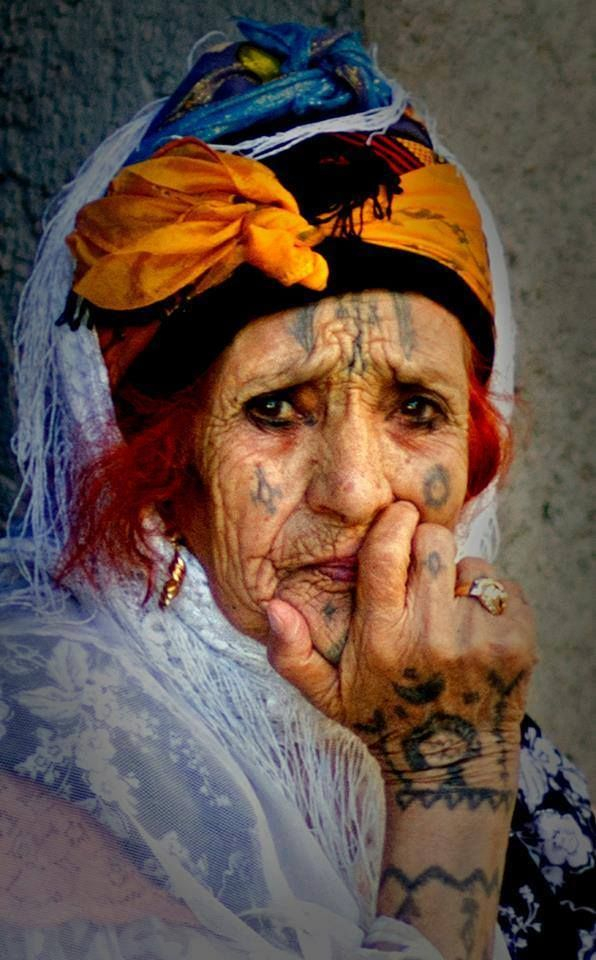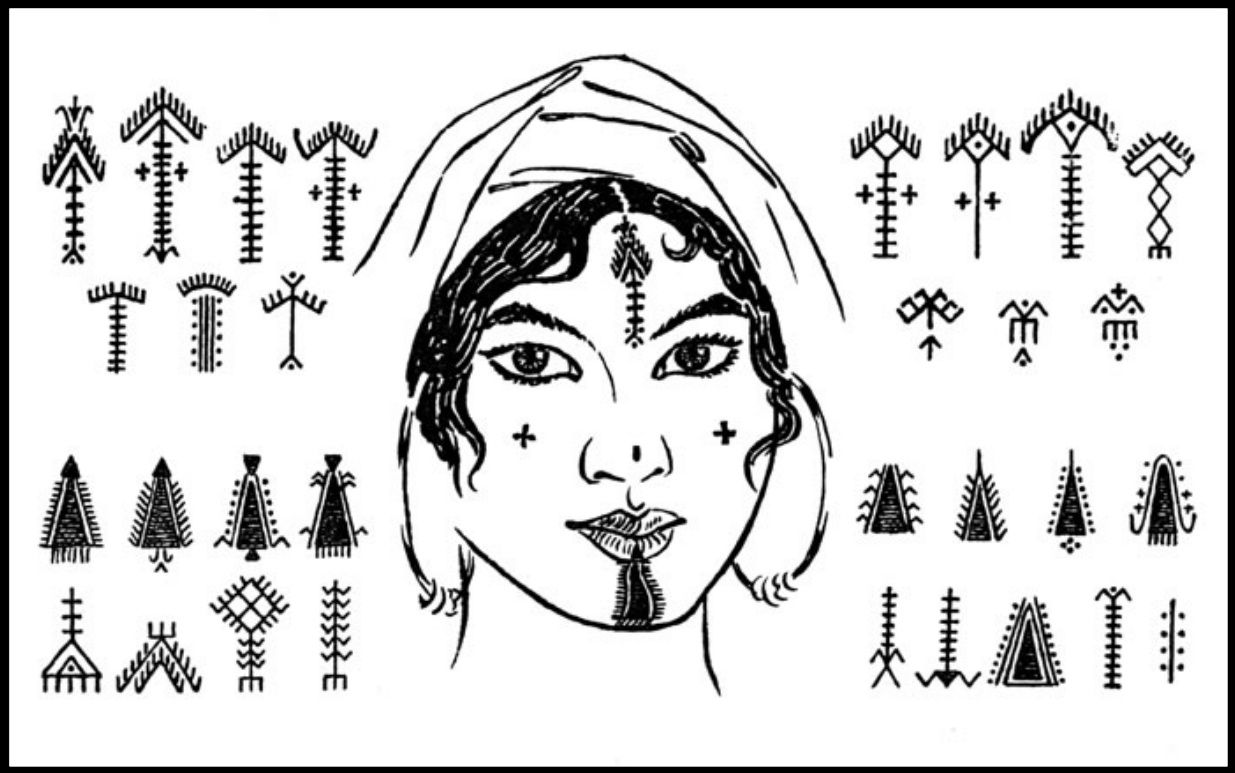Celebrating Indigenous Peoples' Day - The Amazigh

As native peoples all across the globe celebrate Indigenous Peoples’ Day and their respective cultures, I would like to bring special attention to an indiginous group that is well known here in France, the Kabyle people. This tribe is from the mountainous region of Northern Algeria and there are many who have immigrated here to Paris. The Kabyle people are a subgroup of the Amazigh, the indigenous people of North Africa. Amazigh, translating into “Free Man” in English, has heavy significance for the Kabyle people & is an important part of our identity due to the traumatic history of colonization in Algeria and its symbol (ⵣ) in the Amazigh alphabet is seen on our flag.
Examples of traditional Amazigh tattoos. Image Credit: Berber Carpets of Morocco: The Symbols, Origin, and MeaningA specific trademark of our culture along with most Amazigh people are face and body tattoos. Women would be tattooed once they reached adulthood and the symbols, such as diamonds, crosses, and dots, tattooed on their face and other parts of their body represent fertility, protection, and good health. Many of these symbols are found on Amazigh artifacts and decorations such as candelabras, jars, carpets, and wall decorations. This is a dying tradition due to the previous French colonization of Algeria and now the Arabization of North Africa. These tattoos are now haram (forbidden in Arabic) and are only seen on the older generations of women.
As many celebrities such as Madonna and Zoe Kravitz appropriate sacred parts of Amazigh culture (Madonna wearing a traditional wedding dress and jewelry at the 2017 VMA's, Zoe Kravitz appropriating Amazigh hand tattoos), it is important to remember where these traditions come from. Traditional clothing and tattoos are now being rebranded and expropriated while these sacred aspects of our culture are dying out in their native land. The language we speak, Tamazight, has only just become an official language in 2016. As we take the time to appreciate and recognize Native peoples around the world today, l ask you to learn more about the indigenous groups living here in France. The more we know about each other, the more we can respect our differences and prevent further erasure of Indigenous cultures.








